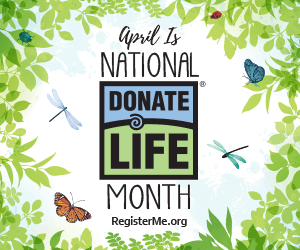 Northwest Kidney Centers encourages everyone who can be to become an organ donor. After all, becoming a donor can be as easy as checking a box when getting a driver’s license.
Northwest Kidney Centers encourages everyone who can be to become an organ donor. After all, becoming a donor can be as easy as checking a box when getting a driver’s license.
As the birthplace of outpatient kidney dialysis, the lifesaving treatment for people with kidney failure that was first introduced in 1962, Northwest Kidney Centers sees a kidney transplant as the best treatment for many patients.
Our patients receive kidney transplants at a rate 60% higher than the rest of the nation.
Though not a treatment option for all patients, those who do receive a transplanted kidney often live longer and have better health and a better quality of life than people on dialysis.
To support of our patients receiving kidney transplants, we:
- offer patients free classes about transplant options.
- encourage patients to get on the transplant waitlist as soon as they can.
Still, it can take up to five years to receive a donated kidney.
Disproportionate number of kidney patients on the national waitlist
Approximately 90,000 people in the United States are currently on the list for a kidney transplant. They represent 84% of the entire national waitlist for all organ transplants.
Two-thirds of transplanted kidneys come from deceased donors, and the other third from living donors. Deceased donor transplants last 8 to 12 years and living donor transplants last 12 to 20 years on average.
Becoming a living donor is more complicated than checking a box, but anyone over 18 years old who is healthy and not at risk for kidney disease can donate a kidney. The success rates of the surgeries are high for everyone involved. Living kidney donors are often relatives or friends of the intended recipient.
When there isn’t a close enough match for the transplant to be successful, donors and their intended recipients may explore a donor exchange or donation chain to include more donors and patients thereby increasing the chances of close donor matches. The longest donation chain on record took place in Alabama in 2018 with more than 100 people involved.
If you or someone you know is interested in becoming an organ donor, visit United Network of Organ Sharing (UNOS) to learn more.
